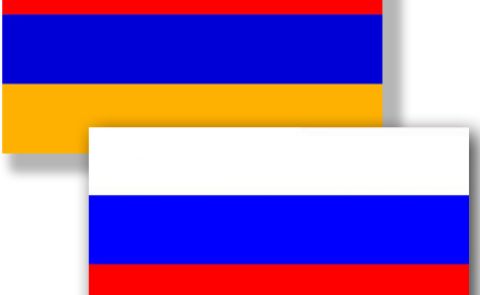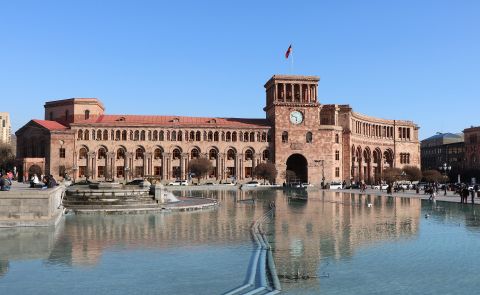
Prime Minister Pashinyan interviewed on BBC’s HARDTalk
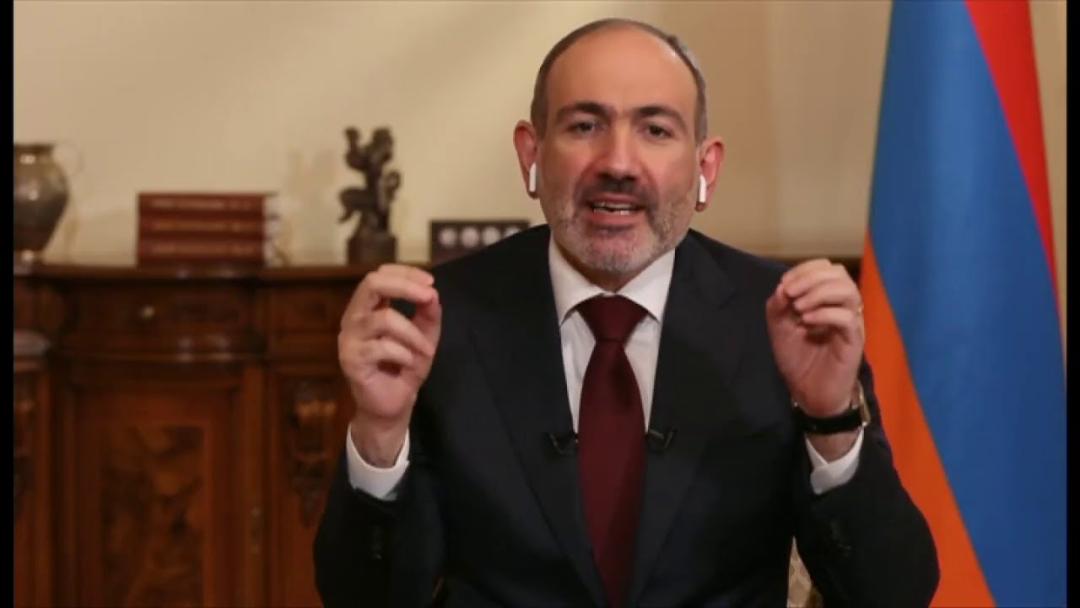
In a heated interview with Stephen Sackur for the BBC’s “HARDTalk”, Armenian Prime Minister Nikol Pashinyan answered questions on a variety of issues, including the Nagorno-Karabakh conflict and the democratization of Armenia.
Sackur started the interview by telling Pashinyan that many Armenians are disparaged because their high hopes for the Velvet Revolution were dashed. Pashinyan voiced his disagreement with this claim by saying: “I would not agree with your impression because all citizens of Armenia see that they are living in a democratic country and in 2019 we had the biggest economic growth in Europe. And we had big economic success and our country made tremendous progress in all international ratings in terms of democracy, freedom of speech, an independent judiciary, anti-corruption policy [...], yes of course the pandemic-situation interrupted our (economic) flight but we will continue.”
Sackur then asked him, how he intends to keep his promise to progress towards peace with Azerbaijan in context of the recent military escalation. “This cannot be achieved through the unilateral action of Armenia. We will have real peace if Azerbaijan reciprocates Armenia’s efforts. As the Prime Minister of Armenia, I proposed a new formula for peace formalizing that any solution of the Nagorno-Karabakh conflict should be acceptable to the people of Armenian and Nagorno-Karabakh and for the people of Azerbaijan. I have been the first Armenian leader ever, saying that a solution for the Nagorno-Karabakh conflict has to be acceptable for the people of Azerbaijan, too. But unfortunately, the Azerbaijani President did not reciprocate my proposal,” Pashinyan said.
Pressuring Pashinyan further on the issue, Sackur insisted that “actions speak louder than words” and summarized how the Armenian shelling along the border was leading towards a further military escalation. Pashinyan defended the Armenian actions by claiming that Azerbaijan initiated military attacks against Armenia and the Azerbaijani officials reverted to bellicose rhetoric, threatening to solve the Nagorno-Karabakh conflict through force.
Asked about him provoking Baku by saying “Karabakh is Armenia” and provoking nationalist chants in Stepanakert (capital of Nagorno-Karabakh), Pashinyan replied by claiming that Armenia backed efforts to monitor ceasefire violations along the Line of Contact.
Sackur responded critically by mentioning the UN General Assembly’s resolution demanding “immediate, complete, unconditional withdraw of all Armenian forces from the occupied territories of the Republic of Azerbaijan” claiming that Pashinyan is “clearly not a peacemaker”. Pashinyan responded by saying that the UN Security Council’s documents refer only to the Self Defense Forces of the Armenians in Nagorno-Karabakh and not to the armed forces of the Republic of Armenia. Furthermore, he claims that at the beginning of the conflict 80% of the people in Nagorno-Karabakh were Armenians and that it was Baku’s attempts to cleanse the area from those people, that provided the ground for the conflict.
Asked if Pashinyan would stop the recent road-construction project for the region due to concerns under international law, he explained that the government of Nagorno-Karabakh is trying to provide for the basic needs of the people in Nagorno-Karabakh, which have been isolated through the blockade instituted by Azerbaijan. He furthermore likened Nagorno-Karabakh’s isolation with that of Armenia imposed by Azerbaijan and Turkey.
Sackur likened Pashinyan to his predecessors on the matter and asked him to identify any “meaningful peace element” in his approach, to which he replied: “I will not agree with you in calling our position nationalistic because Armenians of Nagorno-Karabakh are under an existential threat. And what are we proposing? We are proposing to Azerbaijan to renounce any possibility of the use of force for the Nagorno-Karabakh conflict solution. We should agree on the very simple formula that there is no military solution to the Nagorno-Karabakh conflict.”
The BBC reporter then moved on to ask Pashinyan, if he is willing to admit to the Armenian war atrocities and to apologize for them, considering his personal background as a human rights activist and political prisoner. He replied that “any war is a chain of tragedies” and continued to ask for Baku to renounce any possibility to use force to solve the territorial dispute. Cutting him off and demanding to stick to his question, Sackur continued to pressure him by mentioning the European Court of Human Rights’ catalogue on Armenian war crimes, to which Pashinyan replied: “The European Court of Human Rights has a similar catalogue on Azerbaijan’s atrocities. […] We should mention the Sumgait events that happened in the late 1980s, when the Azerbaijani government and Azerbaijanis initiated pogroms against the Armenians of Sumgait city in Azerbaijan, in (near) the Azerbaijani capital. This issue is the same issue.” He furthermore said that there should be a stronger effort to find proof for the responsibilities of those acts and that Armenians have been victimized by Azerbaijan.
Sackur then leads over to the next topic by accusing Pashinyan of using the escalation of the conflict to divert attention away from his government’s botched response to the Covid-19 pandemic. Pashinyan said that it is still too early to make any policy judgements as the situation is still evolving globally. He also claimed that his government adopted an “appropriate strategy” for Armenia. The reporter kept pressuring the Prime Minister by mentioning that Armenia had the highest death rate in the region and that his response seems to have been badly received by the Armenian people.
Furthermore, Sackur recalled Pashinyan’s visit to Stepanakert early during the pandemic, during which he failed to wear a mask, accusing him of failing in his personal leadership responsibilities. The Prime Minister defended himself by saying that this was legal under the regulations of Nagorno-Karabakh during that time. Consequently, the reporter cites his political critics, who called for his resignation due to his failures on the pandemic response. Pashinyan simply replied by saying: “Armenia is a democratic country and the opposition is free to express itself and I am very glad that it is now much easier to act as an opposition than before the revolution”.
Sackur leads over from this by bringing up a Human Rights Watch report that mentions the lack of investigations into prior policy abuses, ongoing discrimination based on sexual orientation and gender identity as well as the discrimination and segregation of people with disabilities in today’s Armenia. Pashinyan countered by emphatically summarizing Freedom House’s findings, according to which Armenia made the biggest ever recorded two-year-progress on the rule of law and human rights protections in the history of Freedom House’s report.
Pressed again on Human Rights Watch’s claims that Pashinyan is using judicial reforms as a pretense to persecute his opposition, he replied: “As far as the constitutional court is concerned, I should stress that we tried to have the constitutional court fully compliant with our constitution. Because we had a description of our constitutional court in our constitution, but we had a totally different constitutional court in reality. We are doing that to have a constitutional court (that is) fully compliant. As far as criminal cases and arrests are concerned, I should say we have courts and investigative bodies and prosecutors’ offices and it is not me, who should decide who should be detained and who should be released. Our purpose is the rule of law, an independent judiciary and anti-corrupt policy. And the international community recognized our huge success on all of those areas.”
Concluding on the issue of his international alliances and partnerships, Sackur mentions the tough geopolitical situation of Armenia and asks Pashinyan in which direction he is going to lead the country. “Russia is a strategic partner of Armenia in terms of security. We are a member of the EAEU, which is an economic union and we have a comprehensive and enhanced partnership with the European Union and, by the way, the EU is now our main partner in our reform agenda implementation. We have quite an effective cooperation with NATO and, by the way, we are participating in peacekeeping operations in Afghanistan, in Kosovo, in Mali and we have a quite effective military cooperation with the United States, too.”
Sackur also mentioned the obstacles of a realignment with the EU and NATO, describing the “toxic relationship” with Turkey and a “troubled relationship” with the United States due to Armenia insisting on trade relations with Iran. Trying to push Pashinyan towards a more substantive answer, he asked “is your fundamental choice to stay loyal to Moscow or are you ready to embrace a different direction?”, to which Pashinyan shortly replied: “Strategic partnerships are for a long time. But we have good relations with Iran, and we try our best to keep our good relations with the United States and Iran, while staying fully committed to our international commitments”.
See Also


BP Plans Second Deep-Gas Production Well at Azeri-Chirag-Gunashli
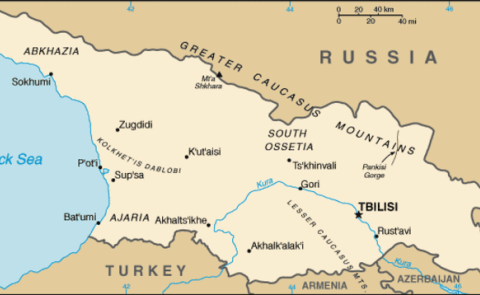
Separatist Abkhazia and Russia Reaffirm Strategic Partnership in Moscow Meeting
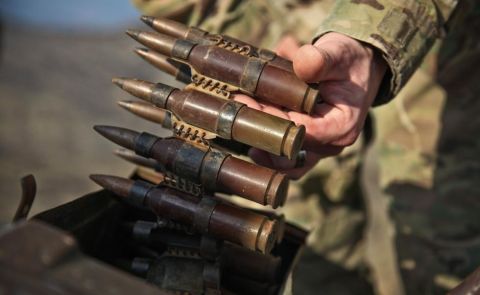
Weekly Brief on Military Situation in South Caucasus Countries (June 2–8, 2025)

Armenia–Russia Trade Hits $12 Billion in 2024, Up 60%
